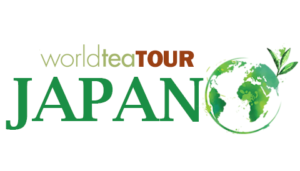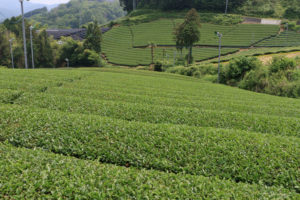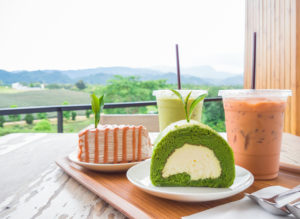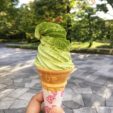What to know, the education sessions to attend and some booths to visit at World Tea Expo to get the full view of what’s happening with Japanese tea today.
 Two key factors are influencing the Japanese tea economy: matcha and millennials.
The Japanese have consumed matcha for centuries, but now Americans love matcha. In the last 25 years, matcha sales in the United States have increased five-fold to more than $10 billion dollars, reported CBS News. Much of the growth has taken place in the last three to five years.
Sugimoto America’s experience is one example of this market trend.
Two key factors are influencing the Japanese tea economy: matcha and millennials.
The Japanese have consumed matcha for centuries, but now Americans love matcha. In the last 25 years, matcha sales in the United States have increased five-fold to more than $10 billion dollars, reported CBS News. Much of the growth has taken place in the last three to five years.
Sugimoto America’s experience is one example of this market trend.


 Nishida pointed out the growing use of matcha in Japanese desserts due to young people’s fondness for sweets. Some well-liked matcha-infused desserts include matcha soft serve ice cream, matcha Kit Kat bars and matcha cake. Whereas, Americans recognized matcha for its healthy antioxidants and began adding it to smoothies, thus inspiring the Japanese to do the same, Tison noted.
Tison added, minimalist contemporary tea cafes have appeared in Japan in which a respect for traditional Japanese tea culture is merged with modernity.
Nishida pointed out the growing use of matcha in Japanese desserts due to young people’s fondness for sweets. Some well-liked matcha-infused desserts include matcha soft serve ice cream, matcha Kit Kat bars and matcha cake. Whereas, Americans recognized matcha for its healthy antioxidants and began adding it to smoothies, thus inspiring the Japanese to do the same, Tison noted.
Tison added, minimalist contemporary tea cafes have appeared in Japan in which a respect for traditional Japanese tea culture is merged with modernity.
Dive Deeper With These World Tea Expo Sessions
Get to know Japanese tea better by attending these World Tea Expo conference sessions. Origins Tasting Tour, including Japan, China, India, Sri Lanka and other countries, 8:30 a.m.-5:15 p.m. June 12 in rooms 231 and 232. Marketing Matcha, what defines matcha and commonly accepted grades, and how to market your matcha, 10-11:10 a.m. June 12 in room 230. A Tea Producer’s Perspective. Learn about sustainability issues of the tea industry, including understanding the cultivation, process and business of matcha, 11:30 a.m.–12:40 p.m. June 12 in room 225.3 Not-to-miss Booths at World Tea Expo
Sugimoto America is a subsidiary of Sugimoto Seicha, a Japanese tea grower in Shizuoka, Japan. Sugimoto America imports Japanese teas such as matcha, sencha, genmaicha and other Japanese favorites. The company will be in booth 540. Japanese Green Tea Co. sources its tea directly from Arahataen Green Tea Farms in the Shizuoka prefecture of Japan. Arahataen farms exclusively with the Chagusaba Method. The company will be in booth 244. Ito En is Japan’s leading green tea purveyor and its teas are widely distributed throughout the United States. Its brands include: TEAS' TEA, OI OCHA, matcha LOVE, ITO EN Matcha Green Tea Bags and ITO EN Shots. Ito En will be in booth 732.
